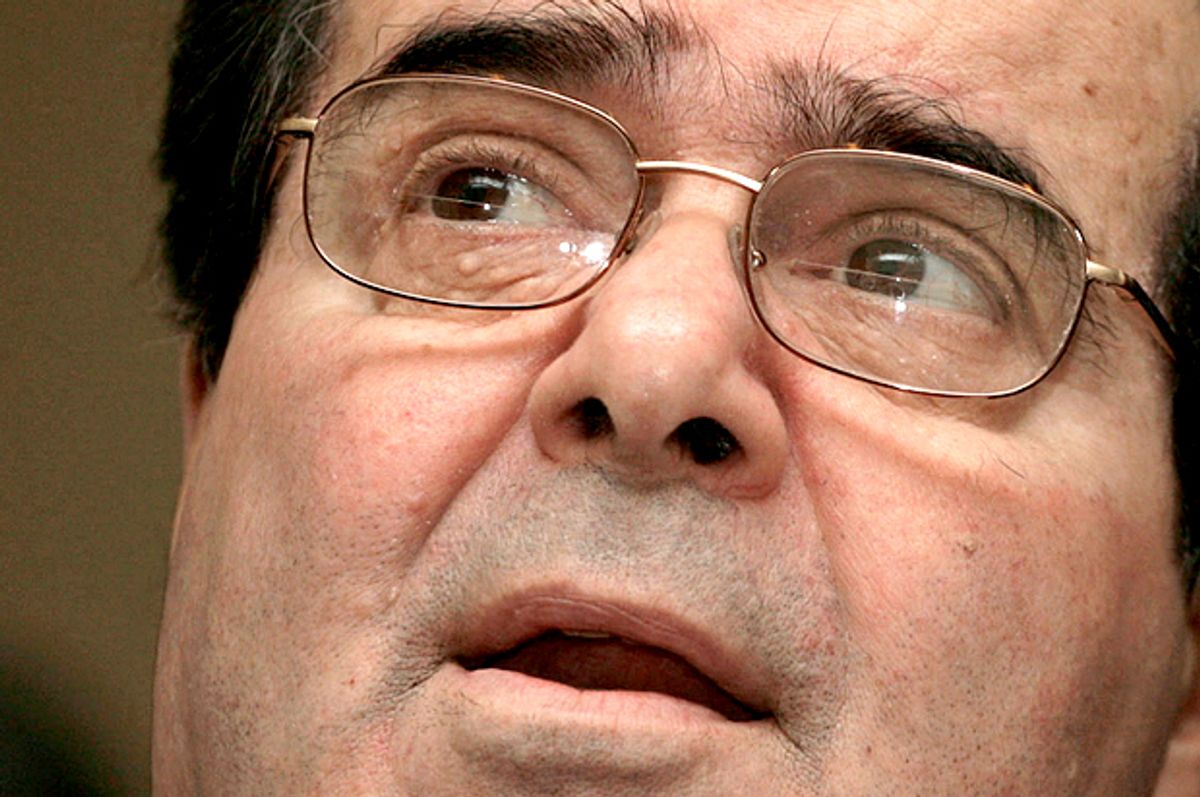Antonin Scalia, the influential conservative and most provocative member of the Supreme Court, died Saturday. He was 79.
The U.S. Marshals Service in Washington confirmed Scalia's death at a private residence in the Big Bend area of South Texas. Spokeswoman Donna Sellers said Scalia had retired the previous evening and was found dead in the morning after he did not appear for breakfast.
Scalia used his keen intellect and missionary zeal in an unyielding attempt to move the court farther to the right after his 1986 appointment by President Ronald Reagan. He also advocated tirelessly in favor of originalism, the method of constitutional interpretation that looks to the meaning of words and concepts as they were understood by the Founding Fathers.
Scalia's impact on the court was muted by his seeming disregard for moderating his views to help build consensus, although he was held in deep affection by his ideological opposites Ruth Bader Ginsburg and Elena Kagan. Scalia and Ginsburg shared a love of opera. He persuaded Kagan to join him on hunting trips.
His 2008 opinion for the court in favor of gun rights drew heavily on the history of the Second Amendment and was his crowning moment on the bench.
He could be a strong supporter of privacy in cases involving police searches and defendants' rights. Indeed, Scalia often said he should be the "poster child" for the criminal defense bar.
But he also voted consistently to let states outlaw abortions, to allow a closer relationship between government and religion, to permit executions and to limit lawsuits.
He was in the court's majority in the 2000 Bush v. Gore decision, which effectively decided the presidential election for Republican George W. Bush. "Get over it," Scalia would famously say at speaking engagements in the ensuing years whenever the topic arose.
Bush later named one of Scalia's sons, Eugene, to an administration job, but the Senate refused to confirm him. Eugene Scalia served as the Labor Department solicitor temporarily in a recess appointment.
A smoker of cigarettes and pipes, Scalia enjoyed baseball, poker, hunting and the piano. He was an enthusiastic singer at court Christmas parties and other musical gatherings, and once appeared on stage with Ginsburg as a Washington Opera extra.
Ginsburg once said that Scalia was "an absolutely charming man, and he can make even the most sober judge laugh." She said that she urged her friend to tone down his dissenting opinions "because he'll be more effective if he is not so polemical. I'm not always successful."

Shares